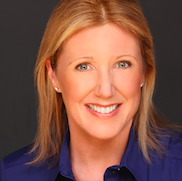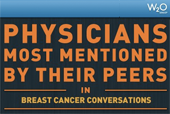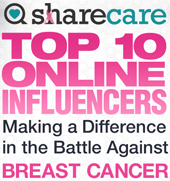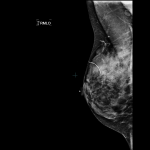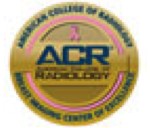Montclair Breast Center Responds to Mammogram Controversy
February 14th, 2014The physicians at Montclair Breast Center are extremely disappointed by the NY Times’ recent decision to run a front page article that cites an incredibly flawed study from the British Medical Journal as if it is actually legitimate science. The BMJ article is based on the deeply flawed and widely discredited Canadian National Breast Screening Study, which used a fundamentally corrupted allocation process for the two patient groups that were compared; it was also based on mammograms from the 1980’s that were of incredibly poor quality, even by the standards of…
Read MoreQ&A: Does Normal Mean No Cancer?
October 12th, 2012If I have a negative (normal) mammogram, does that mean I definitely don’t have breast cancer?
- Mammography is an imperfect test. A “normal mammogram” report does not mean that a woman does not have breast cancer. Overall, mammograms will pick up 80-90% of cancers. That’s pretty good, but there are still 10-20% of cancers that will not be seen, and will present as an “interval cancer” with a palpable lump.
The cancer detection rate plummets in women with dense breasts to only 40-50% of cancers picked up
Why I Chose to Become a Breast Imager
January 24th, 2012A few days ago in the park I passed a woman who was sporting a full set of hair curlers and wearing a housecoat. It’s been awhile since I’ve seen that, and it brought an image to my mind of my grandmother and her sisters in their rollers under headscarves in the 70’s, leaning from windows to hang laundry to dry on their retractable clotheslines in Jersey City. Fond memories of these ladies surfaced, and I thought about an essay I’d written in which they’d been featured; several of these great-aunts died prematurely from breast cancer, before adequate screening was offered.…
Read MoreGood News For Early Detection in New Jersey!
January 20th, 2012Thanks to the tireless efforts of dedicated grassroots patient advocates, NJ State Senators Loretta Weinberg and Nia Gill have sponsored a bill that will be brought before the next legislative session. This bill requires that all mammogram reports contain information on breast density, and requires insurers to cover comprehensive breast ultrasound screening if a mammogram demonstrates dense breast tissue. Studies have shown that adding an ultrasound to the mammogram for women with dense breasts results in a 50% increase in breast cancer detection.
At …
Read MoreDiagnosed with Breast Cancer as a New Mother, Sharon Shares her Story
December 6th, 2011In 2003, my mom friend Sharon was relishing her role as a new mother in her early 40’s. She’d given birth to her daughter in 2001, and was now busy chasing after an adorable toddler, navigating naptimes, bottles and diapers, while working in the banking industry in Manhattan. Her husband and their brother-in-law had renovated and opened a beautiful new restaurant, and life was very exciting.
The Symptom Leading to Diagnosis
Sharon had gone for yearly mammograms since turning 40, and the test had always been reported as normal. She had no family history of breast…
Read MoreDiagnosed with Breast Cancer at Age 29, Lori Kennedy Shares Her Story 20 Years Later
November 21st, 2011Looking at her today, you’d never guess that my mom friend Lori Kennedy had been through the gauntlet of breast cancer diagnosis and treatment at the age of 29. A mutual friend introduced us several years ago, and after Lori learned that my field is breast imaging, she mentioned that she’d had breast cancer years before. I was intrigued by her story, and thought it would be helpful to share in “The Breast Diaries.”
The Shock of Diagnosis
In April of 1992 Lori was 29 years old, living the single life in Hoboken and working successfully in sales. She had been dating a man…
Read MoreResponse to NY Times article: Mammogram’s Role as Savior Is Tested
November 2nd, 2011Tara Parker-Pope’s recent article in the New York Times Science Section discounts the role of mammography as an essential tool in the quest to save women from premature death due to breast cancer. She reports on the conclusion drawn by researchers Welch and Frankel from Dartmouth, who published a statistical analysis using epidemiologic data and computer software in this article in Archives of Internal Medicine this month. Their conclusion: “Most women with screen-detected breast cancer have not had their life saved by screening. They are instead either…
Read More8 Things You Can Do TODAY to Lower Your Risk of Advanced Breast Cancer
October 29th, 2011Breast Cancer Awareness Month ends on Monday. Of course awareness is important, but knowing what specific actions you can take to protect yourself against the disease is empowering. Breast cancer can strike anyone, with or without risk factors. However, there are several things you can do NOW to lessen the likelihood of advanced breast cancer happening to you.
1. Lace up and take a walk! According to the Women’s Health Initiative study, women who walked just 30 minutes per day at least 5 days a week (exercise pace, not a leisurely stroll) decreased their breast…
Read MoreChristina Applegate Foundation Gives Direct Financial Aid for Breast MRI
October 6th, 2011In 2009, the year after she was diagnosed with breast cancer at age 36 after a screening Breast MRI test, actress Christina Applegate founded Right Action for Women (www.rightactionforwomen.org), a foundation dedicated to educating women about what it means to be at “high risk” for breast cancer.
In addition to education, the foundation offers financial assistance for women 45 years old and younger, with a family history of breast cancer or with a positive BRCA gene test, to gain access to Breast MRI, regardless of insurance status. Insurance companies often …
Read MoreWhen Should I Have My First Mammogram?
October 4th, 2011General Guidelines
For most women, age 40 should be when you start having yearly mammograms in order to minimize your likelihood of developing advanced breast cancer (“Government Mammography Task Force vs. You”). Some doctors send their patients for a baseline mammogram at age 35, and I wouldn’t argue with that.
Family History
If you have a strong family history of breast cancer (mother or sister), start having your mammogram 10 years younger than the age that relative was diagnosed, OR at age 40, whichever is younger. For example, if your sister had breast cancer…
Read More
